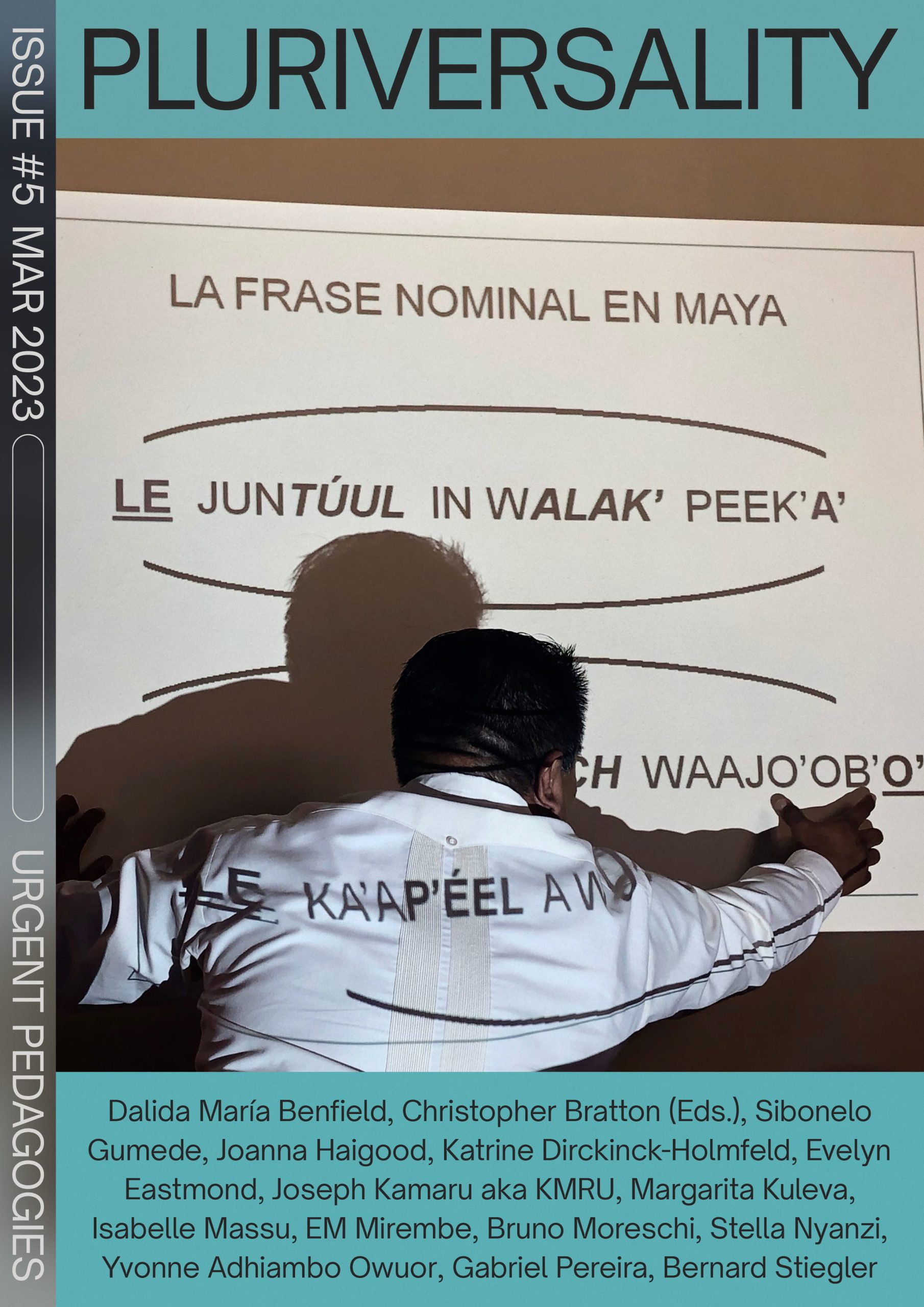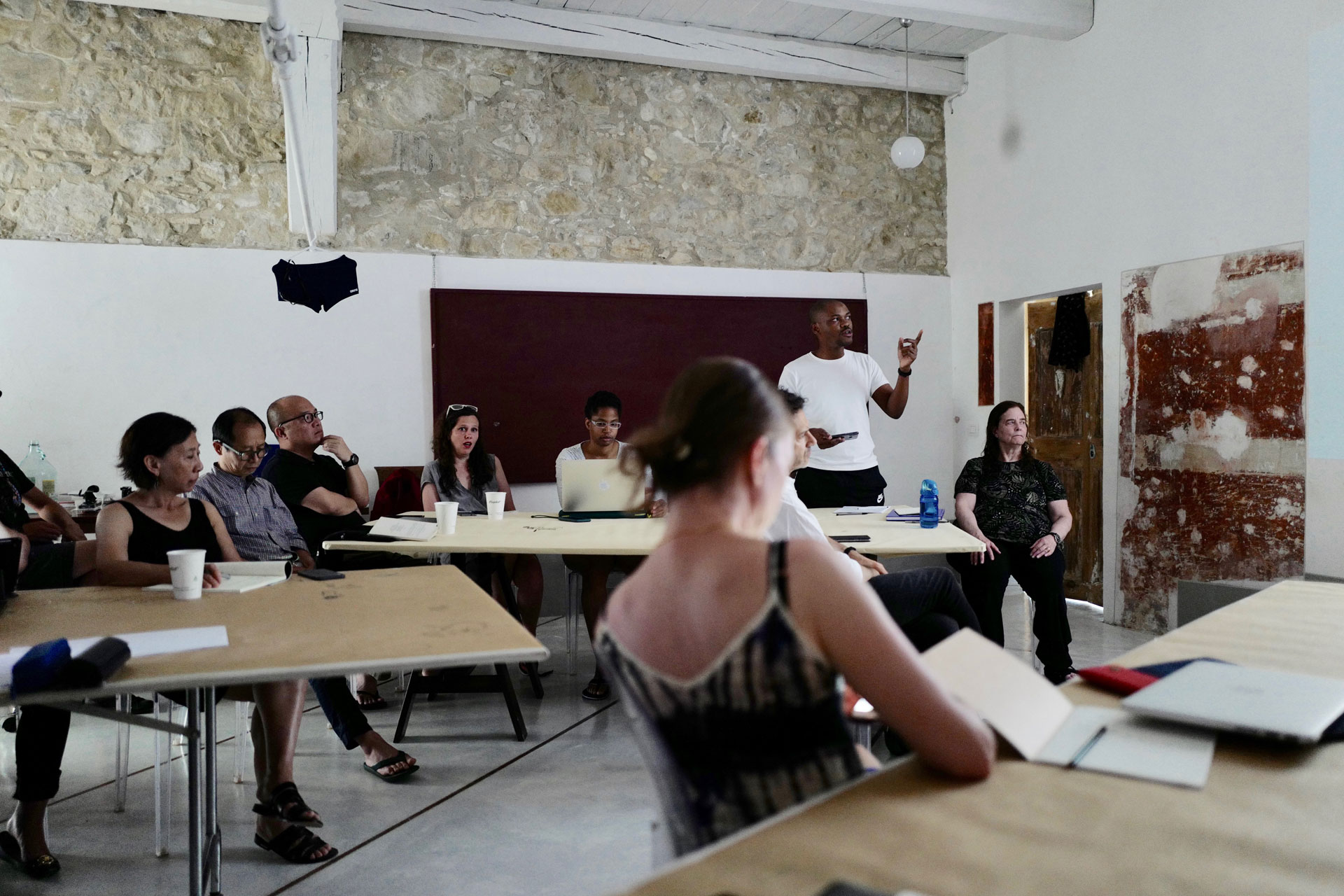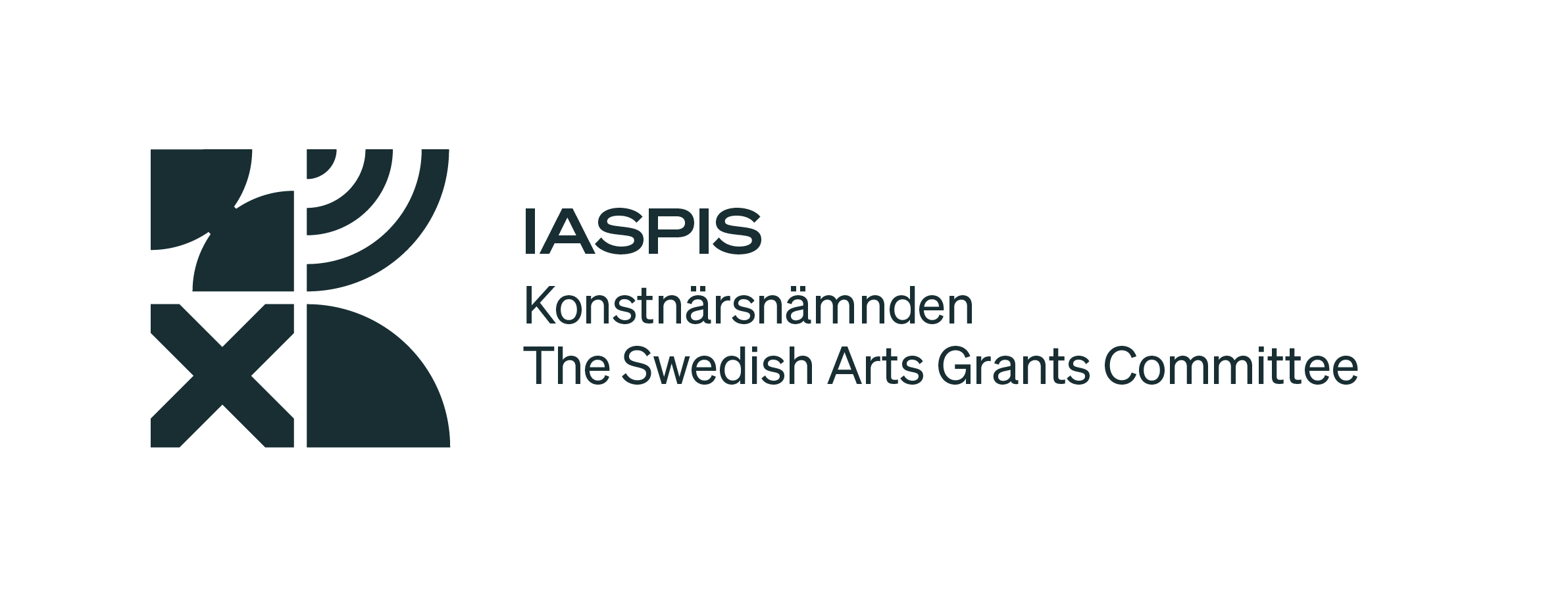Weeds of enlightenment
Margarita Kuleva
CATEGORY
On April 5, 2021, Russian President Vladimir Putin signed legislation that brought “educational activities” under direct state control. These activities are vaguely defined as occurring outside of formal schools with the intention of “disseminating knowledge”.
Thus anyone defined by state officials as an “educator” falls under the law and becomes subject to prohibition [1]. In response, Margarita Kuleva asks through her project, “Weeds of Enlightenment,” what possibilities emerge when education is detached from its institutionalized forms, from the state and schooling, its spaces and procedures? What grows when education’s fundamental articulation — its distinction between teacher and student — is upended? What spaces of everyday resistance are made and remade? If teaching and learning are understood as integral to one another, that every person is both a teacher and learner, always in relation, then the pedagogical encounter can occur anywhere and at any time, in interstitial and informal spaces, much abbreviated or much extended.
This essay is a reflection on the recent {min} enlightenment project, a series of performative lectures by Margarita Kuleva, the author of this article, and her students, Angelina Silaeva, Maria Tokmanova, Alexander Uttu, and Nikita Yurov. The project explored alternative regimes of public education by subverting the concept of enlightenment.
The story begins in April 2021, when I was invited to teach a class called ‘Media and Culture’ for a newly established MA program ‘Media Studies and Media Communication at Higher School of Economics in Russia University, where I worked as an Associate Professor until 2022. The class was assigned to me by the administration of the program: It was intended to build the theoretical grounds for students’ upcoming research practice in the media industry. When I announced this intention to the four enrolled students during our first meeting, they delivered some unexpected news: the course outcomes had been withdrawn. I was surprised but not shocked. The new times of the pandemic made me expect cancellations and sudden changes.
Sometimes the best plan is no plan. The next class I started with a single intention, that of openness. If we are not expected to produce certain results then we can do the uncertain, with a right to explore and fail collectively. United by this adventurous impulse, we started brainstorming. Our free flow sessions resulted in the common understanding that we are all were looking for opportunities to step out of the regimes of neoliberal education. For students and tutors, highly competitive academia comes packed with anxiety and stress. In search of an alternative, we touched on the topic of public education.
At the same time, a heated discussion occurred in the Russian media: The country was about to – and actually did, on the 1st June 2021 – implement the so-called law ‘On Enlightenment Activity’, regulating educational activity outside of official study programs. We were concerned not only about the effects of these restrictions on the public educational activities crucial to the livelihoods of cultural workers and art institutions in Russia, but also for the concept of enlightenment itself. Having origins in the Age of Reason, “enlightenment” deepens the many divisions of modernity, between the enlighteners and ones to be enlightened, based on gender, class, and location in the world. Thus, we called the project {min} enlightenment, which stands for the Ministry that we came to be in dialogue with, and also for the minimum level of enlightenment. Being spelled differently, we are enacting an impoverished enlightenment with no intention of improving anyone.
In our experimental project, we were looking for more inclusive forms of public education. We decided to stay with public lectures as the project format, but deconstruct the lecture form. Why should the lecturer stand and speak in front of a disciplined audience sitting at desks? Why should the speaker have most of the time and attention of the lecture? Why can’t the audience be busy with something else as well? In our critical reassessment of lecture formats, we traced a line back to the salons of enlightenment. Our Google search for ‘Salon of enlightenment’ generously supplied us with addresses of beauty salons located near Prospect of Enlightenment in the north of St Petersburg. Obviously, our desk research did not reveal a space that Voltaire might have visited, though it became very clear there are plenty of public spaces outside of universities and museums where urban dwellers spend their time in conversation, sharing and acquiring new skills. For instance, more than 6,000 beauty salons operate in St. Petersburg alone. More than public lecture halls, museums, galleries, universities. What debates about culture, politics, and the human body are unfolding among familiar strangers, to the sound of hair dryers and the clack of scissors? What transformations are taking place with them?
We approached these semipublic – semiprivate places as the new salons of enlightenment, and chose three types of them to host our public lectures: a garage, literally ‘a tire fitting salon’, a spa salon and swimming pool, and a beauty salon. Our fundamental condition was all three salons should be open during the lecture as we didn’t want to supplement their spatial organization, soundscape and social practices with ours. We considered our project not as a beautiful planting of education to be cultivated, but rather as weeds of enlightenment that grow sporadically, tolerating and being tolerated by other plants, sounds, agents.
There were three lectures of {min} enlightenment held in St Petersburg in June-July 2021. The first one happened at a car garage, in an extremely noisy and busy atmosphere. The lecture was performed by Ksenia Malich, an architectural historian, and was devoted to utopic visions of the city that include not only people, but also machines. Consequently, the lecture was for the machines only with no people invited to attend.
My lecture on the collective ethnography of swimming happened in a public swimming hall. The attendees were able to listen while swimming, among them a children’s swimming class, or from the pool’s patio.
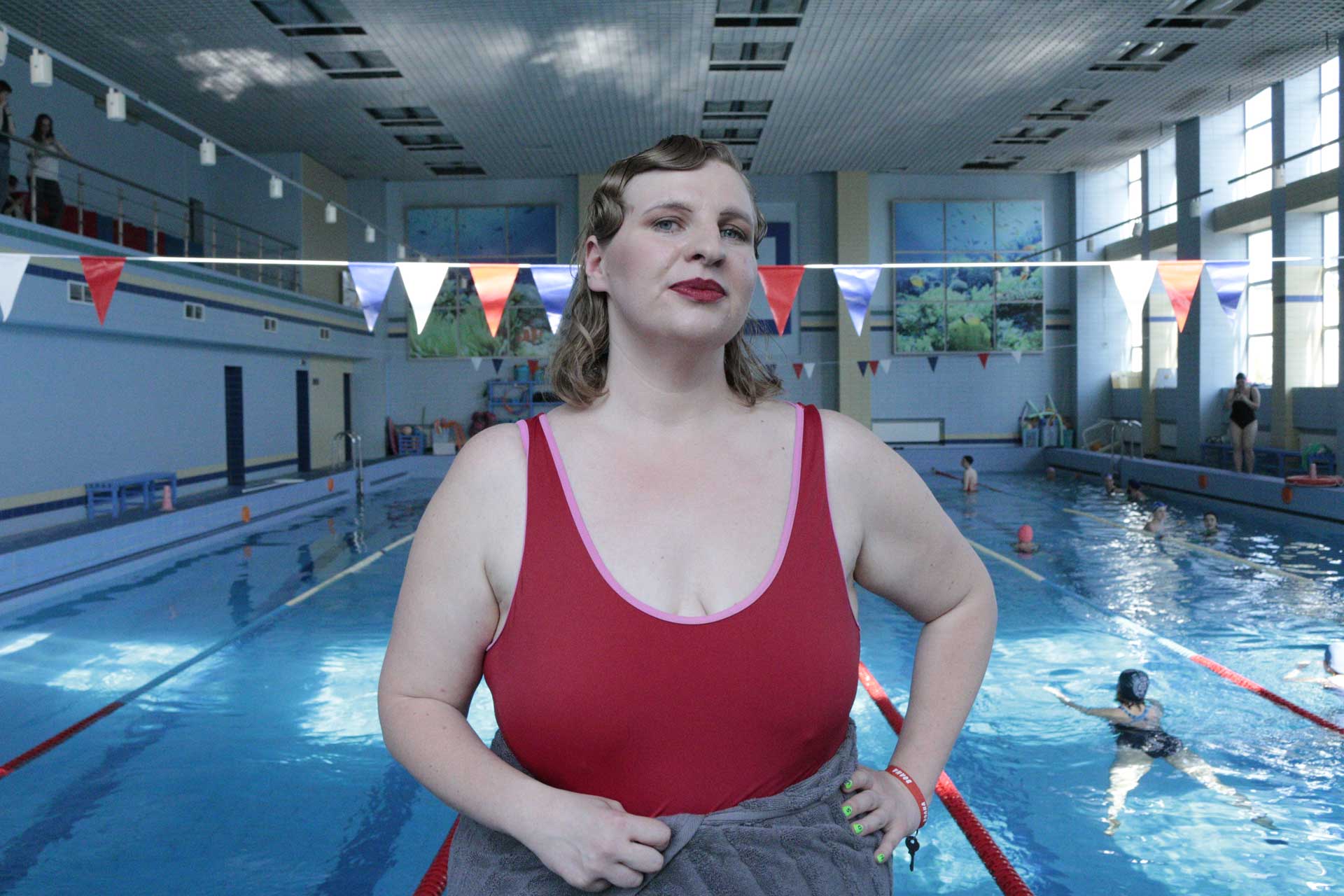
Margarita Kuleva, swimming pool lecture, {min} enlightenment, 2021. Photo by Anastasia Shatalova
The final panel discussion was organized at a beauty salon that was booked by us as clients. With the presence of 20 invited guests, other clients, and the hairdressers themselves, artist Gluklya Pershina, philosopher Vladislav Orsher, and myself, held a panel discussion on beauty and society, while getting haircuts.
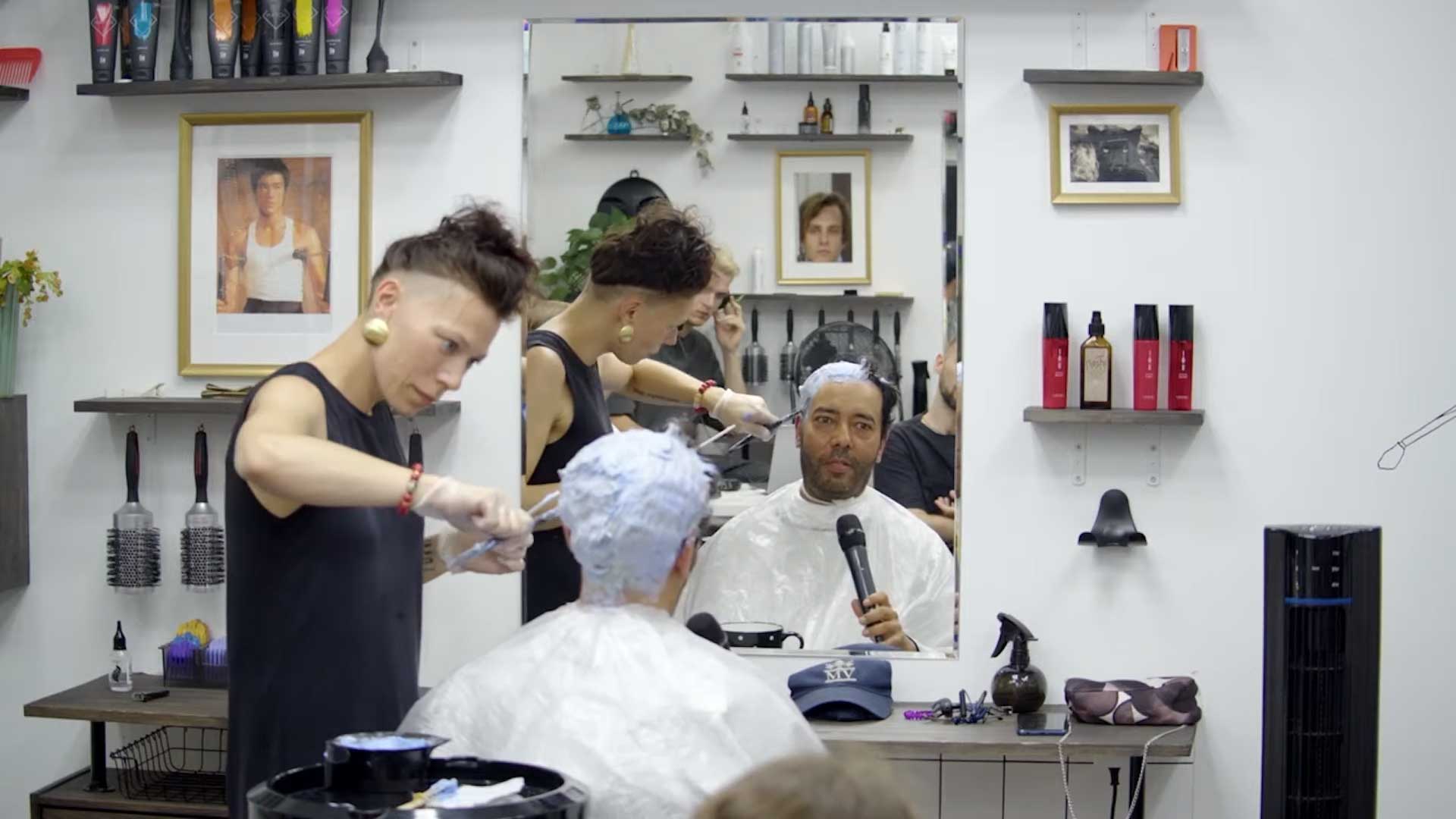
Beauty salon panel discussion, {min} enlightenment, 2021. Photo by Alexandra Shanina
Each of the three locations welcomed us, but without giving us any particular privilege: the garage continued fixing cars and changing tires, the swimmers swam, the hairdressers cut hair with the difference that mundane chat now involved more people for the time of the lecture. In every location, we were bizarre strangers, not the colonizers of knowledge. There were no pedestals to maintain our status, just a little interest or surprise.
This text has been commissioned and written uniquely for Urgent Pedagogies.
Weeds of Enlightenment is part of Urgent Pedagogies Issue#5: Pluraversality
Dr., is an artist, curator, and researcher. She is based in New York and works as a postdoc at the NYU Jordan Center. Additionally, she collaborates with TAEX, a London based platform for digital art as a senior curator. She is interested in exploring social inequalities in cultural and knowledge production. In her research and art projects she mainly uses ethnography and performance as methods. In particular, her Ph.D. was devoted to the ‘behind the scenes’ of cultural institutions to give greater visibility to the invisible workers of culture. In the last two years, Margarita has been developing performative lectures as an approach to deconstructing dominant forms of hierarchized production of knowledge. She was a CAD+SR Research Fellow, 2019-2020.
All of the performances were streamed on YouTube and are available with automated English subtitles at https://www.youtube.com/channel/UC8BhEyITfXy-A5TyPHvKfYA
